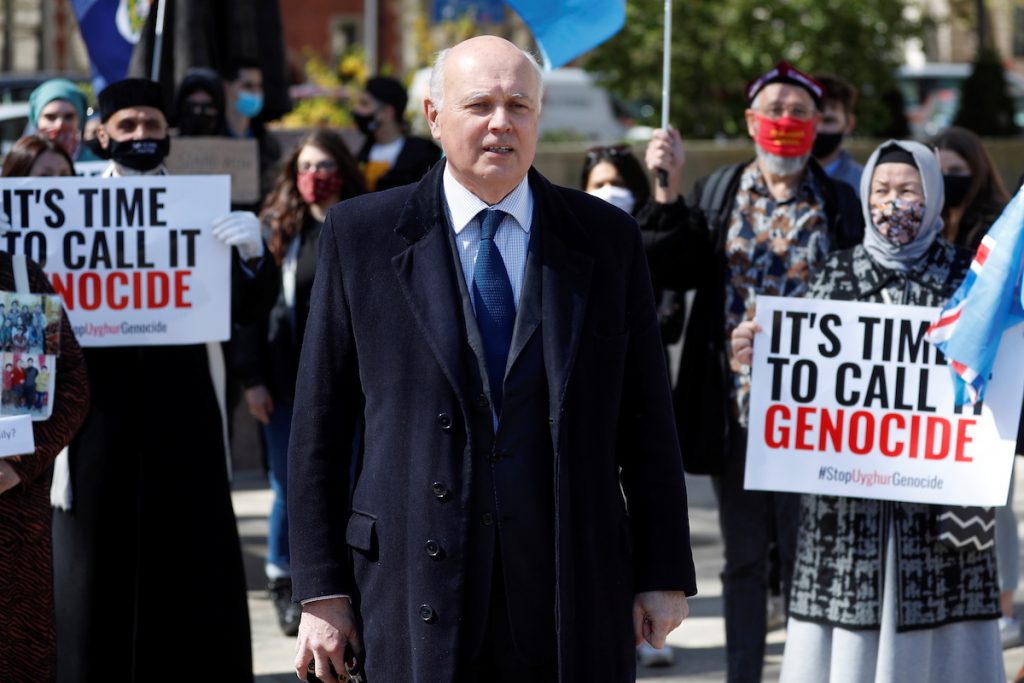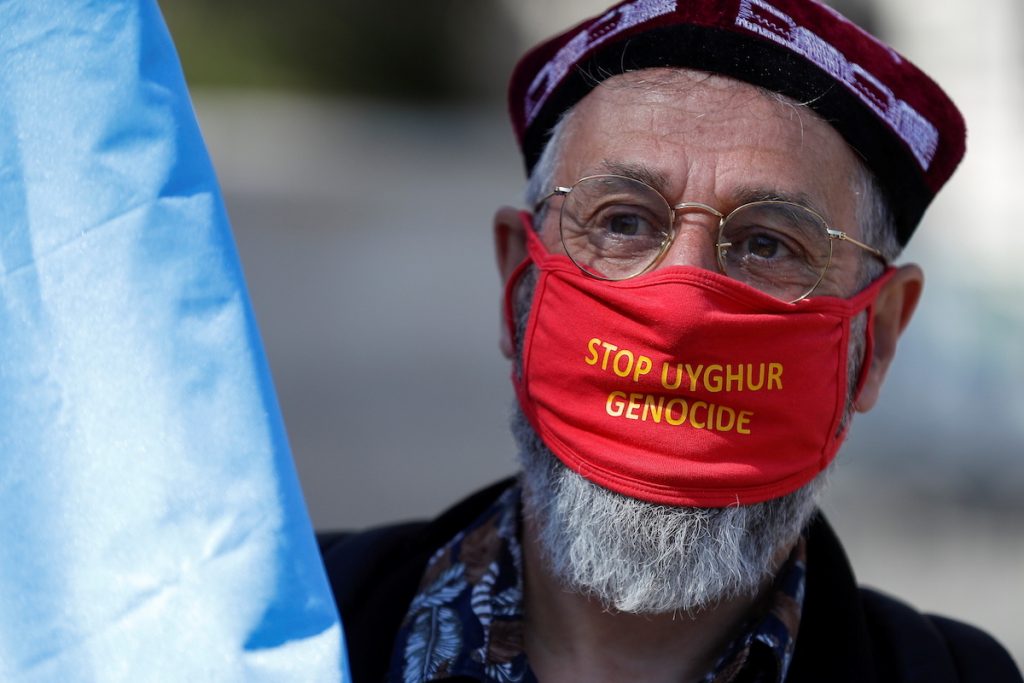Britain’s parliament called for the government to act against what lawmakers described as genocide in China’s Xinjiang region, stepping up pressure on ministers to go further in their criticism of Beijing.
But Prime Minister Boris Johnson’s government again steered clear of declaring genocide over what it says are “industrial-scale” human rights abuses against the mainly Muslim Uyghur community in Xinjiang. Ministers say any decision on declaring a genocide is up to the courts.
So far, the government has imposed sanctions on some Chinese officials and introduced rules to try to prevent goods linked to the region entering the supply chain, but a majority of lawmakers want ministers to go further.
Lawmakers backed a motion brought by Conservative MP Nusrat Ghani stating Uyghurs in Xinjiang were suffering crimes against humanity and genocide, and calling on government to use international law to bring it to an end.
“Today Parliament has spoken with one voice and called out the Chinese Communist Party’s brutal oppression of Uyghurs for what it is — a genocide,” Ghani said reported RFA.
“The work does not stop here. We have a solemn obligation under the Genocide Convention to act to prevent further atrocities from taking place. History will not judge us kindly if we fail to do so,” said Ghani who is also a member of the international cross-party Inter-Parliamentary Alliance on China (IPAC).
IPAC and its members welcomed the news that the UK Parliament has joined the US, Canada and the Netherlands in declaring the Chinese Communist Party’s actions in Xinxiang as genocide.
“The government should heed the call and work common cause with allies to establish a fact-finding mission and continue to sanction key officials and entities responsible for the genocide, ban forced labor-produced goods from the region, increase humanitarian aid and asylum for Uyghurs, and relocate the 2022 Olympic games,” IPAC said in a statement.

IPAC said this is the first time a genocide declaration has passed the UK Parliament unopposed.
But the support for the motion is non-binding, meaning it is up to the government to decide what action, if any, to take next.
The Chinese embassy in the UK condemned the parliament’s move, calling on Britain to take concrete steps to respect China’s core interests and “immediately right its wrong moves”.
Britain’s minister for Asia, Nigel Adams, again set out to parliament the government’s position that any decision on describing the human rights abuses in Xinjiang as genocide would have to be taken by “competent” courts.
Some lawmakers fear Britain risks falling out of step with allies over China after the Biden administration endorsed a determination by its predecessor that China had committed genocide in Xinjiang.
But UK Foreign Secretary Dominic Raab, last month, called the abuse of the Uyghurs in Xinjiang “one of the worst human rights crises of our time”.
“The suffering of the Uyghur Muslims in Xinjiang cannot be ignored. Human rights violations on this scale cannot be ignored,” Raab told the House of Commons.
China’s communist government has denied accusations of abuses in Xinjiang, and has said the complexes it set up in the region provided vocational training to help stamp out Islamist extremism and separatism. Those in the facilities have since “graduated”, it says.

Earlier in the year the administration of then then US President, Donald Trump determined that the PRC has committed “genocide and crimes against humanity” against the Uyghur Muslims.
The then Secretary of State Mike Pompeo said on Jan. 19 that he made the move “after careful examination of the available facts,” accusing the Chinese Communist Party of crimes against humanity against the Uyghurs and other Muslim minorities.
An independent UN human rights panel said in 2018 that it had received credible reports that at least 1 million Uyghurs and other Muslims had been detained in the region.
Last year, a report by German researcher Adrian Zenz, published by a Washington think tank, accused the Chinese authorities of using forced sterilization, forced abortion and coercive family planning against Muslims in Xinjiang.
A BBC report on Feb. 3 said women in the camps were subject to rape, sexual abuse and torture.
Faith leaders, activist groups and others have said crimes against humanity, including genocide, are taking place in Xinjiang. In August last year, religious leaders, including Myanmar’s Cardinal Charles Bo and Indonesia’s Cardinal Ignatius Suharyo, said in an open letter that the “repression” in the region has become “one of the most egregious human tragedies since the Holocaust.”
The scale of crimes against humanity against Uyghurs and other Turkic Muslims in China’s Xinjiang region requires an international response, Human Rights Watch said upon the release of a new report this week.
With Reuters






